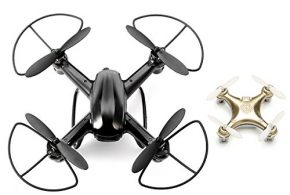Contact Your Lawmaker – Encourage Positive Drone Legislation
The Ability To Sway In Numbers

When it comes to issues involving growth, local and national economies, and the vibrancy of many different citizens, many citizens tend to sit back and let their imagination get the best of them. If you feel a certain way about a specific issue, It is very important to speak out in not just your vote, but other ways.
Some issues that are dealt with in the legislative process have to approach a certain point before the public even gets their chance to weigh in, and this is why it is so important to make sure you know who to contact when an issue is at stake.
Every year, many hundreds of decisions are made by government officials that will drastically impact the way you live, do business, deal with tax issues, and other dire subjects within your local area.
Don’t Believe the ‘Vacuum’ Theory
There are many out there who will tell you that the requests and various emails that legislators and officials receive fall on dead ears, or go unread. Here is the way you need to think about this: even if what you are “rallying” for seems like a lost cause, (which positive drone legislation is most definitely not), there are always people going over information from various sources behind the scenes.
If you are pushing for something that you know will benefit you and/or have a positive effect on the community, you may turn on the news and see that the numbers are not in your favor, and the lawmakers are not leaning towards your desired outcome.
But the emails ARE most definitely read, and when their assistants are having them take note of their communique for the day, your message and valuable opinion could sway them in the future, or even in the very urgent present time.
The Scoop on one Very Active Advocacy Group
Just within the last week, The Commerical Drone Alliance roared to full speed, which has some incredibly influential and successful individuals at the helm. Board members include folks from Cisco, Data Wing, and Measure, which is a company that is focused on the business model itself that leads to a successful company that uses drones for delivery or data.
Former CEO of Cisco John Chambers invested heavily in a drone startup last month called Airware, which is involved in creating the software that helps navigate drones to their destinations efficiently, and process important gathered data such as video.
This group intends on being hyper-focused on the ways in which drones can provide commercial applications, and representing the needs of businesses that are interested in all avenues of drone use.
Check out our major post on FPV.
Where Do Drone Issues Sit Now Legally?
Right now under current FAA rules, businesses have to apply for federal approval of using drones for their respective purposes, whether it is to inspect job sites, or photograph homes for real estate. There are some groups out there such as the Small UAV Coalition, who represent the companies selling the drones, and they feel that the $5 registration fee for many models could actually hurt the market, as consumers never like to spend extra.
As we gleaned the web to determine what the major issues were regarding drones and legislation, This article sheds some light on a few of the groups that have formed out there right now, and what their objectives are.
Most in the drone community from hobbyists on up to serious search-and-rescue pilots want the purchase of, licensing, and flying of drones to be without as much legal red tape as possible, and so we’ll explore the avenues of contacting those in authority.
How To’s of The Hustle: Contacting Lawmakers
It is usually best to focus within your city and state when it comes to Congressional District; they know that when it boils down to it, your vote is the one that helps elect them, and that is the weight you want to use to make sure they read your message. If you start sending letters around to members of Congress that read the same thing, you may generate some positive motion, but your own backyard is one of the most important keys of this battlefield.
- Your letter should address a single issue. Typed, one-page letters are the most efficient, and many of those experienced in this recommend a 3-paragraph approach.
- Even when using email, include your name and address, because this is what is most likely for you to generate a response. Tell them exactly why you are writing, and who you are, along with credentials.
- Try to keep raw emotion out of your correspondence, and provide detail and specific information about how the topic of drone legislation affects you and others. When dealing with a specific bill, cite the exact number or title if you can locate it, to make sure there is no confusion about your plea.
- In closing, request the action you think would be best to take, and what kind of change or result you would like to see most.
- Being courteous, straight to the point, and including very specific examples will yield the most results, and have your opinion held in the highest regard possible.
- Don’t ever demand a response, as being pushy and unprofessional will harm instead of help your cause in the long run.
- Don’t ever use profanity or threaten anyone. Threatening an official will just plain get you in heaps of trouble, and foul language will make you come off as rude and extremely pushy.
Check out another recent post on drone tracking.
A Sample Letter To a Legislator:
(Month) (Day) (Year)
The Honorable (First name) (Last name)
(Room Number), State Capitol
Sacramento, CA (Zip Code)
RE: (state the topic or include the bill number, author and subject if you are writing to support
or oppose a particular legislative bill)
Dear (Assembly Member/Senator) (Last name):
My name is (your first and last name) and I am a regional center consumer (family member
/service provider/advocate/community member) who resides in your district.
(State why you support or oppose the bill or other issue here. Choose up to three of the
strongest points that support your position and state them clearly.)
(Include a personal story. Tell your representative why the issue is important to you and how it
affects you, your family member and your community.)
(Tell your representative how you want her or him to vote on this issue and ask for a response.
Be sure to include your name and address on both your letter and envelope.)
Sincerely,
SIGN YOUR NAME
Generally, the same guidelines apply to e-mail as to written letters. Before you start sending off e-mails, it can be a good idea to call the legislator’s office and ask if emails are generally effective. It is most effective to not “CC” or copy other representatives, and don’t send any infographics or images.
Even though you may do it every day at your job, don’t send attachments, and sending a hard copy of the email to the legislator is generally not seen as rude or overkill. If you choose to make a phone call to a legislator, state your name and address, and simply identify yourself as the legislator’s constituent.
State what your position is on legislation regarding drones, and know that your call WILL be tracked even if it feels hurried on their end. Completely collect your thoughts in advance, which will help shorten the call and let them know you are focused and organized.
Interest in micro quadcopter kits? Read more in our micro quad building post.
Identifying Legislation:
Here are some ways to cite legislation identifiers if you chose to go national and write to Congress, or for local legislators as well.
- House Bills: “H.R._____”
- House Resolutions: “H.RES._____”
- House Joint Resolutions: “H.J.RES._____”
- Senate Bills: “S._____”
- Senate Resolutions: “S.RES._____”
- Senate Joint Resolutions: “S.J.RES._____”
Where do I find my Local Lawmaker?
The United States:
In the USA, the quickest way to locate your legislator is with The USA.Gov Website. The state elected officials are within the second section here, and you just click on your state to get the list.
In England:
In the United Kingdom, the lawmakers that you address your concerns to are known as “The Commons”. You can contact them with any concerns, comments, or issues regarding drone legislation Here at their website. This is the page that actually lists them all out and shows you how to find your local MP.
If you would like to opt to contact them by telephone, here is that information:
Telephone: 020 7219 4272
Email: House of Commons Enquiry Service
Text phone: Dial 18001 followed by 020 7219 4272
In Australia:
The postal address for the Parliament House is:
Parliament House
Canberra
ACT 2600
Australia
To contact them with your concerns regarding drone legislation online, just go to This web link. Visitors to Parliament House may even view the proceedings of the Senate and the House of Representatives.
Question time tickets for the House of Representatives can be booked during office hours by telephoning the Serjeant-at-Arm’s Office on (02) 6277 4889 up until 12.30pm on the day required. For all tour inquiries call 02 6277 5399 or, you can send an email to visitorservices@aph.gov.au.
How Often should I contact my legislative personnel if I want change?
This is something that needs to be addressed, as if you are a presently operating company that employs the use of drones, you are going to be quite concerned with! Instead of bombarding them and making their daily lives more difficult, we recommend contacting them about once a month, to show you are persistent, but not going to post to be a problem, or halt to their productivity.
While many people are very excited about the future of drone technology and all of the possibilities that exist, they may feel uneasy because they don’t know exactly what areas they will be able to fly over, the types of equipment they can use, and other very important legal issues that will affect them day to day. Being proactive like this can really make you feel as if you are at least part of the solution for what you want to do as a commercial or recreational drone pilot, and that you are contacting those with the power to change things.
Other ways contacting lawmakers can benefit you:
Maybe up until now, you were confused about your role as a citizen, and felt like you had just been a taxpaying “drone” yourself, and not involved in the democratic process. Once you reach out to lawmakers, you are using the rights that are granted you under your nation’s own laws, and making a difference any which way you can.
As someone who already loves gadgets, you’ll find that history will be changing very rapidly in the days to come, and that it will be a very exciting time to be a drone enthusiast. Letting your voice be heard will make you feel more assertive, prepared, and when the time comes to hit the skies with your favorite drone, that you have been essential in “fighting the good fight”.




